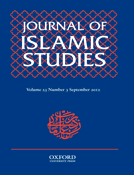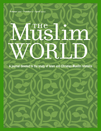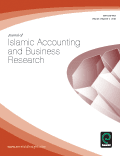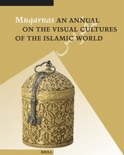
Journal of Islamic Studies
Scope & Guideline
Advancing Knowledge in Islamic Studies
Introduction
Aims and Scopes
- Interdisciplinary Islamic Studies:
The journal encourages research that crosses disciplinary boundaries, integrating perspectives from history, theology, sociology, and political science to provide a holistic understanding of Islamic phenomena. - Historical Contextualization:
A consistent focus on historical developments within Islamic societies helps contextualize contemporary issues, examining how past events shape current realities. - Cultural Exchange and Interaction:
The journal explores the dynamics of cultural exchange within Islamic contexts, including interactions with other religious traditions, particularly in regions like South Asia, the Middle East, and North Africa. - Gender Studies in Islam:
Significant attention is given to gender issues, including the role of women in Islamic scholarship, activism, and community leadership, reflecting on both historical and contemporary contexts. - Political and Social Dimensions of Islam:
Research often addresses the relationship between Islam and politics, exploring themes such as governance, authority, and the role of Islamic movements in modern society. - Sufism and Mystical Traditions:
The journal provides a platform for exploring Sufism, its historical development, and its influence on Islamic spirituality, ethics, and communal practices. - Islamic Law and Ethics:
A focus on legal thought, ethics, and the evolution of Islamic jurisprudence is prominent, examining how these elements interact with contemporary legal and social challenges.
Trending and Emerging
- Islam and Globalization:
Recent research increasingly examines the impact of globalization on Islamic practices and identities, exploring how Muslims navigate their faith in a rapidly changing world. - Interfaith Dialogue and Coexistence:
There is a growing emphasis on studies that investigate interfaith relations, particularly in post-colonial contexts, highlighting the importance of dialogue and mutual understanding among different religious communities. - Environmental Ethics and Islam:
Emerging themes include the intersection of Islamic teachings with environmental issues, reflecting a global concern for sustainability and ecological justice as part of Islamic ethical discourse. - Digital Humanities and Islamic Studies:
The integration of digital tools and methodologies in Islamic studies is gaining traction, with scholars utilizing technology to analyze texts, visualize historical data, and engage with broader audiences. - Contemporary Islamic Movements:
Research that investigates the role of contemporary Islamic movements, including their responses to political and social challenges, is increasingly prevalent, reflecting a need to understand modern Islamic activism. - Health and Wellbeing in Islamic Contexts:
There is a rising interest in exploring health and wellbeing from an Islamic perspective, particularly in relation to mental health, community resilience, and the impact of socio-political factors on health outcomes.
Declining or Waning
- Traditional Historical Narratives:
There seems to be a waning interest in conventional historical narratives that do not engage with contemporary implications or interdisciplinary approaches, as scholars increasingly seek to connect historical insights with modern issues. - Western Perspectives on Islam:
Papers that primarily frame Islamic studies through a Western lens, focusing on critique or Orientalist perspectives, have decreased, reflecting a shift towards more nuanced and indigenous approaches to understanding Islam. - Ritualistic Practices:
Research focused solely on ritualistic aspects of Islam, without broader cultural or social context, appears to be less frequent, as scholars move towards examining the implications of these practices in contemporary society. - Static Views of Islamic Doctrine:
There is a noticeable decline in papers that present static interpretations of Islamic doctrines, as the field increasingly embraces the dynamic and evolving nature of Islamic thought.
Similar Journals

MUSLIM WORLD
Unveiling the Impact of Islam on Contemporary SocietyThe Muslim World is a prestigious peer-reviewed journal published by Wiley, focusing on the intricate relationships and contributions of Islam within various domains of humanities and social sciences. With its roots tracing back to 1911 and converging until 2024, the journal encompasses an expansive historical perspective, enriching the understanding of Islamic culture, history, and its contemporary political significance. The journal holds a commendable impact in the field, as evidenced by its Q1 ranking in History and Religious Studies, and notable positions in Political Science and Sociology categories, signifying its substantial influence among researchers and academics. While operating under a subscription model, The Muslim World remains a crucial platform for fostering scholarly dialogue, promoting innovative research, and disseminating pivotal findings in its areas of study. With an ISSN of 0027-4909 and an E-ISSN of 1478-1913, it is committed to advancing knowledge within the framework of interdisciplinary studies, appealing to seasoned scholars and emerging researchers alike.

Islamic Africa
Illuminating Interdisciplinary Insights into Africa's Islamic HeritageIslamic Africa, published by BRILL, is a vital academic journal that serves as a scholarly platform dedicated to the exploration of Islamic culture and its multifaceted interactions with the African continent. With a focus on cultural studies, history, literature and literary theory, religious studies, and the social sciences, this journal invites contributions that deepen our understanding of the historical and contemporary dynamics of Islam in Africa. Although categorized in various quartiles, it holds significance as a resource for researchers and students, particularly those engaged in areas ranked within the Q3 and Q4 categories. Since its inception, Islamic Africa has evolved through converged years, actively promoting interdisciplinary dialogue among scholars. With its commitment to high-quality research, this journal aims to illuminate the complexities of Islamic traditions and societies in Africa, fostering a deeper appreciation of their contributions to global cultural heritage.

Afkar-Jurnal Akidah & Pemikiran Islam-Journal of Aqidah & Islamic Thought
Exploring the Depths of Aqidah and PhilosophyAfkar-Jurnal Akidah & Pemikiran Islam-Journal of Aqidah & Islamic Thought is a premier academic journal published by University Malaya's Academy of Islamic Studies, dedicated to advancing the fields of Islamic thought and philosophy. Since its inception, it has rapidly gained recognition, achieving an impressive Q2 ranking in Philosophy and a Q1 ranking in Religious Studies as of 2023, reflecting its crucial contribution to scholarly discourse. With an increasing Scopus ranking, currently positioned at #187 out of 644 in Arts and Humanities - Religious Studies, it emphasizes the interdisciplinary nature of Islamic scholarship, catering not only to theologians but also to philosophers, sociologists, and cultural theorists. The journal welcomes articles that explore contemporary issues in Islamic thought while adhering to rigorous academic standards, providing a reflective platform for researchers, professionals, and students alike. Based in Kuala Lumpur, Malaysia, this journal operates under a commitment to open academic discourse, fostering an inclusive environment for groundbreaking research from various corners of the globe.

Oriens
Advancing Interdisciplinary Insights for a Deeper UnderstandingOriens is a distinguished academic journal published by BRILL, based in the Netherlands, focusing on the interdisciplinary integration of Cultural Studies, Philosophy, and Religious Studies. With an ISSN of 0078-6527 and E-ISSN of 1877-8372, it has established its presence since 2009 and continues to provide a vital platform for scholarly discourse through 2024. Recognized in the Q3 quartile for all three fields, the journal boasts impressive Scopus ranking positions, such as 75th out of 644 in Religious Studies, placing it in the top 12% percentile of its category. This makes Oriens an invaluable resource for researchers, professionals, and students seeking to explore significant themes and developments in these areas. While the journal is not open access, its subscription model ensures high-quality, peer-reviewed content that contributes significantly to the existing body of knowledge. By fostering a critical dialogue among diverse scholarly perspectives, Oriens remains an important conduit for advancing interdisciplinary insights and cultural understanding.

Journal of Islamic Accounting and Business Research
Elevating Islamic Accounting to Global Standards.The Journal of Islamic Accounting and Business Research, published by EMERALD GROUP PUBLISHING LTD, is a leading academic journal dedicated to advancing the field of Islamic accounting and business practices. With its ISSN 1759-0817 and E-ISSN 1759-0825, this journal has established itself as a vital source of scholarly articles from 2010 to 2024, focusing on the integration of Islamic principles within contemporary business and accounting frameworks. Placed in varied quartiles across multiple categories in 2023—Q3 in Accounting and Strategy and Management, and Q2 in Business and International Management—this journal recognizes the dynamic intersection of Islamic economics and modern business theories. Situated in the United Kingdom, it plays a crucial role in supplying researchers, professionals, and students with cutting-edge insights and empirical findings, ensuring that it remains at the forefront of the discourse in its field. Furthermore, with impressive Scopus rankings, it stands out as a key resource for those seeking to explore the complexities and advancements in Islamic financial practices and business strategies.

Journal of Al-Tamaddun
Unveiling Insights from Islamic History and CultureWelcome to the Journal of Al-Tamaddun, an esteemed academic publication dedicated to the exploration of Islamic history, culture, and anthropology. Published by UNIV MALAYA, ACAD ISLAMIC STUDIES, this open-access journal has been contributing to scholarly discourse since 2008, allowing comprehensive and unrestricted access to its rich array of research articles. The journal proudly ranks in the upper quartiles of several categories for 2023, including Q1 in History and Religious Studies and Q2 in Anthropology and Cultural Studies, reflecting its significant impact and relevance in these fields. Hailing from Malaysia, the journal serves as a global platform for researchers and scholars, fostering interdisciplinary dialogue and enhancing our understanding of civilization through a critical Islamic perspective. With its Scopus rankings highlighting its standing within arts and humanities, the Journal of Al-Tamaddun aims to propel innovative research and contribute to the development of knowledge across diverse academic landscapes.

Muqarnas-An Annual on the Visual Cultures of the Islamic World
Connecting Scholars to the Heart of Islamic Visual HeritageMuqarnas: An Annual on the Visual Cultures of the Islamic World, published by BRILL, stands as a seminal contribution to the academic discourse surrounding the visual cultures intrinsic to Islamic societies. With its ISSN 0732-2992 and E-ISSN 2211-8993, this prestigious journal, based in the Netherlands, has been a vital resource for scholars since its inception in 1985. Specializing in the intersection of Cultural Studies, History, and Visual Arts, Muqarnas is recognized as a Q1 journal in Visual Arts and Performing Arts and maintains strong positions in other academic categories, underscored by impressive Scopus rankings. Offering a deep exploration of visual traditions and practices, the journal fosters a broader understanding of Islamic art and architecture's historical contexts, contributing significantly to its field. With its rigorous peer-review process and commitment to scholarly excellence, Muqarnas invites researchers, professionals, and students to engage with the rich tapestry of Islamic visual culture, ensuring its relevance and importance for contemporary scholarship.

International Journal of Islamic Thought
Empowering Scholars through Open Access ResearchInternational Journal of Islamic Thought is a leading scholarly publication, dedicated to advancing knowledge and understanding in the fields of Islamic studies. Published by UNIV KEBANGSAAN MALAYSIA, FAC SCIENCE & TECHNOLOGY, this journal is positioned as an essential resource for researchers, professionals, and students alike, striving to explore and disseminate contemporary thoughts and interpretations within the Islamic intellectual tradition. With an impact factor indicative of its quality—ranking Q2 in Arts and Humanities and Q3 in Social Sciences as of 2023—the journal provides a robust platform for interdisciplinary discourse. Since its inception, the journal has embraced an open access model, ensuring that research is readily available to a global audience, thereby fostering further inquiry and collaboration. Hailing from Malaysia, the journal's commitment to contributing to both the local and international scholarly communities is underscored by its impressive standing in the Scopus rankings, reflecting its growing influence and reach in the academic landscape.

Miscelanea de Estudios Arabes y Hebraicos-Seccion Arabe-Islam
Connecting Scholars to the Heart of Arabic StudiesMiscelanea de Estudios Arabes y Hebraicos-Seccion Arabe-Islam is a distinguished academic journal dedicated to the study of Arabic and Islamic studies, published by UNIV GRANADA, EDITORIAL. With an ISSN of 1696-5868 and E-ISSN 2341-0906, this publication provides a vital platform for scholars and researchers interested in the deep historical, cultural, and linguistic connections between the Arab and Hebrew worlds. Situated in the heart of Granada, Spain, this journal aims to promote interdisciplinary approaches and foster dialogue among academics in these rich fields of study. Although it operates under traditional access protocols, the journal’s commitment to quality is reflected in its rigorous peer-review process, making it a valuable resource for researchers, professionals, and students alike. By engaging with cutting-edge research and critical perspectives, the journal plays an essential role in enhancing the understanding of Arabic and Islamic heritage today.

Intellectual Discourse
Fostering Multidisciplinary DialogueIntellectual Discourse is a distinguished academic journal published by the International Islamic University Malaysia's Press Research Management Center. This journal, with an ISSN of 0128-4878 and E-ISSN of 2289-5639, serves as a vital platform for scholarly work in the fields of Philosophy, Sociology, and Political Science. Since its inception in 2011, it has strived to foster a multidisciplinary dialogue, blending theoretical insights with empirical research. Ranked Q2 in Philosophy and Q3 in Sociology and Political Science as of 2023, Intellectual Discourse is committed to advancing knowledge and understanding through rigorous analysis and innovative perspectives. Researchers and scholars can access its insightful publications to stay abreast of current trends and discussions that shape their fields. With an ongoing commitment to intellectual rigor, the journal positions itself as an essential resource for academics and students aiming to explore complex social phenomena and philosophical inquiries.